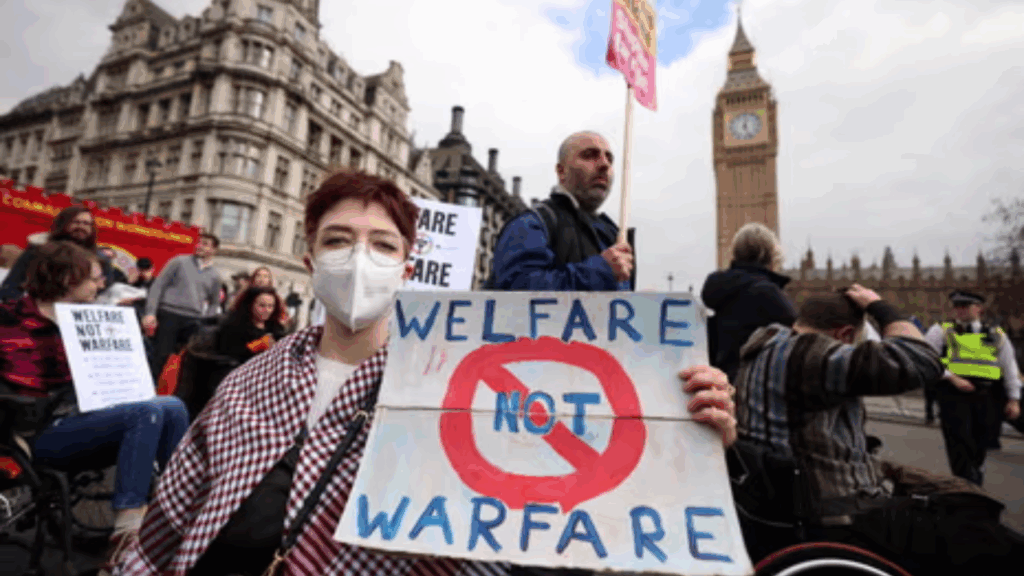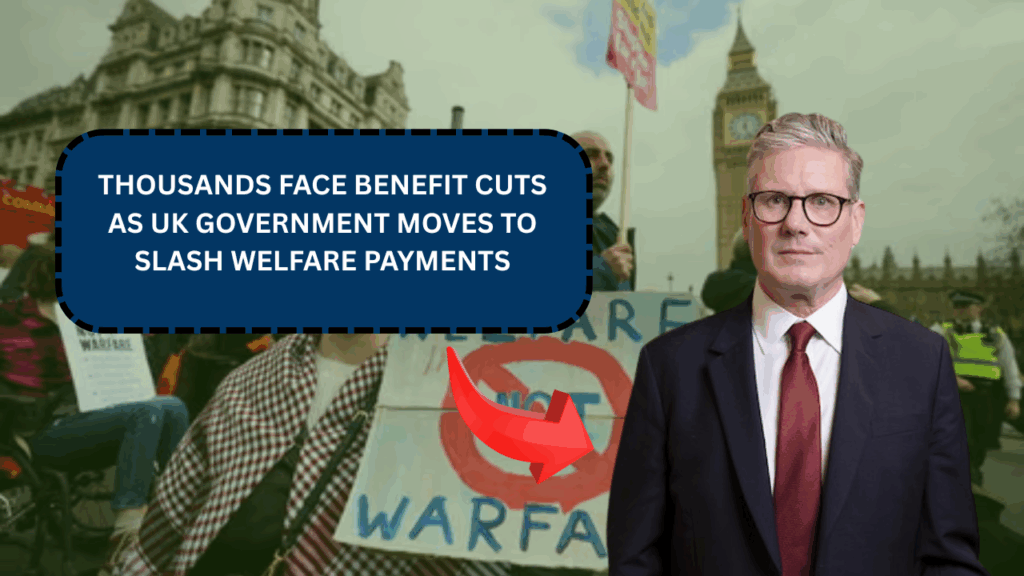The UK government’s recent proposals to cut welfare benefits, excluding Personal Independence Payments (PIP) and Universal Credit (UC), are set to affect thousands of vulnerable individuals across the country. These cuts are part of a broader government strategy to reduce its social spending, with significant consequences for those relying on incapacity benefits and other health-related welfare components. If the changes proceed as planned, millions of households could lose vital financial support.
What’s Changing with Welfare Benefits?
The UK government is planning sweeping changes to the welfare system, with a specific focus on benefits related to incapacity and health conditions. The Department for Work and Pensions (DWP) estimates that over 700,000 families already living in poverty could be directly impacted by the cuts. These reforms are intended to reduce government spending by approximately £5 billion annually by 2030.
The key focus of these cuts lies in the following areas:
- Incapacity Benefits: These are provided to individuals who are unable to work due to illness or disability. The government plans to tighten eligibility requirements for incapacity benefits, meaning many individuals who are currently receiving support may lose their benefits. The government argues that this measure will encourage people to seek employment if they are capable of working. However, critics argue that this approach fails to address the structural barriers that disabled people face in finding work.
- Health-Related Components of UC: Another significant change involves the health-related component of Universal Credit, which helps those with disabilities or long-term health conditions. Claimants could lose vital support, with some facing cuts of up to £500 annually. For new claimants, the cuts could be as much as £3,000 per year. This reduction would particularly affect individuals with severe disabilities or chronic health conditions, who often rely on this support to make ends meet.
- Carer’s Allowance and Support for Disabled Individuals: Around 150,000 carers in the UK may also see their financial support reduced. This includes cuts to Carer’s Allowance and the UC care element, which could have a significant impact on families who rely on carers for support.
Why Is the Government Making These Changes?
The UK government justifies these cuts as part of an ongoing effort to reduce public spending and to ensure that those who are capable of working are encouraged to seek employment. Chancellor Rachel Reeves and Work and Pensions Secretary Liz Kendall argue that the changes are necessary to balance the country’s finances while encouraging a more sustainable welfare system. They also pledge a £1 billion investment in employment support programs to assist disabled individuals in finding work.

How Will These Cuts Affect the Most Vulnerable?
The proposed cuts are expected to have severe consequences for some of the UK’s most vulnerable groups. According to internal forecasts by the DWP, over 96% of those impacted by these changes are disabled or living with a disability. This includes individuals who are already in poverty and reliant on benefits to support themselves and their families.
A significant portion of these families will be hit by the removal or reduction of benefits, leaving them without sufficient financial support. Among those affected, approximately 250,000 individuals, including 50,000 children, could be pushed further into poverty by 2029/30 if the proposed changes go through. The potential loss of income could worsen already difficult living conditions for many disabled people and their families.
The impact of these cuts extends beyond just financial hardship. It could lead to increased mental and physical stress for those already struggling with health conditions, who may find themselves unable to access the resources they need.
Opposition to the Welfare Cuts
The government’s proposals have sparked strong opposition from various quarters. Over 80 Labour MPs have signed a letter expressing concern over the cuts, arguing that they will disproportionately harm disabled individuals and families already in financial distress. Moreover, 42 MPs have publicly stated that they cannot support the proposed reforms, claiming that they will deepen inequality rather than help to alleviate it.
Furthermore, disability rights groups, healthcare professionals, and social justice advocates have raised alarms about the negative impact of these cuts on people living with disabilities. Critics argue that the government’s approach is insufficient in addressing the systemic barriers disabled individuals face when it comes to accessing employment and financial independence.
What’s Next?
As the debate over the welfare cuts intensifies, the government is set to hold a vote on the proposals in the House of Commons in June 2025. This vote will be crucial in determining whether the cuts will move forward as planned.
For many individuals and families reliant on welfare support, the coming weeks will be a time of uncertainty, as they wait to see whether the government will back down from its proposed cuts or push forward with the controversial reforms. The decision will also have significant implications for the future of the UK’s welfare system and how it supports the most vulnerable members of society.
Conclusion
If you are one of the individuals who rely on benefits, it is essential to stay informed about the upcoming changes and understand how they might impact your finances. Organizations that support disabled people, carers, and other vulnerable groups will likely offer guidance and support to those affected by the cuts. Keep an eye on official government announcements and reach out to support groups if you need advice or assistance.





